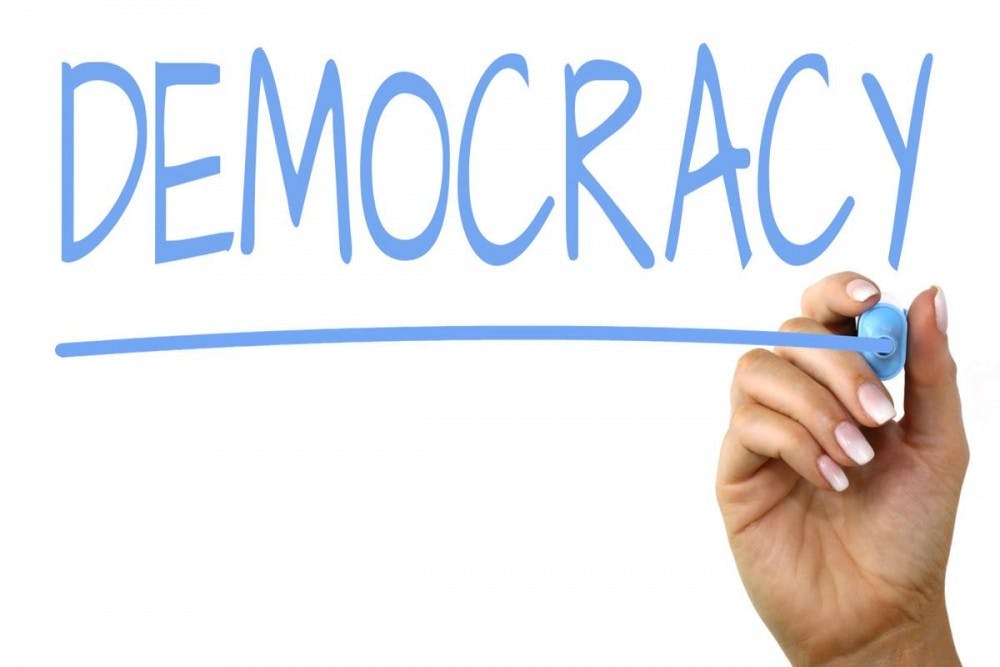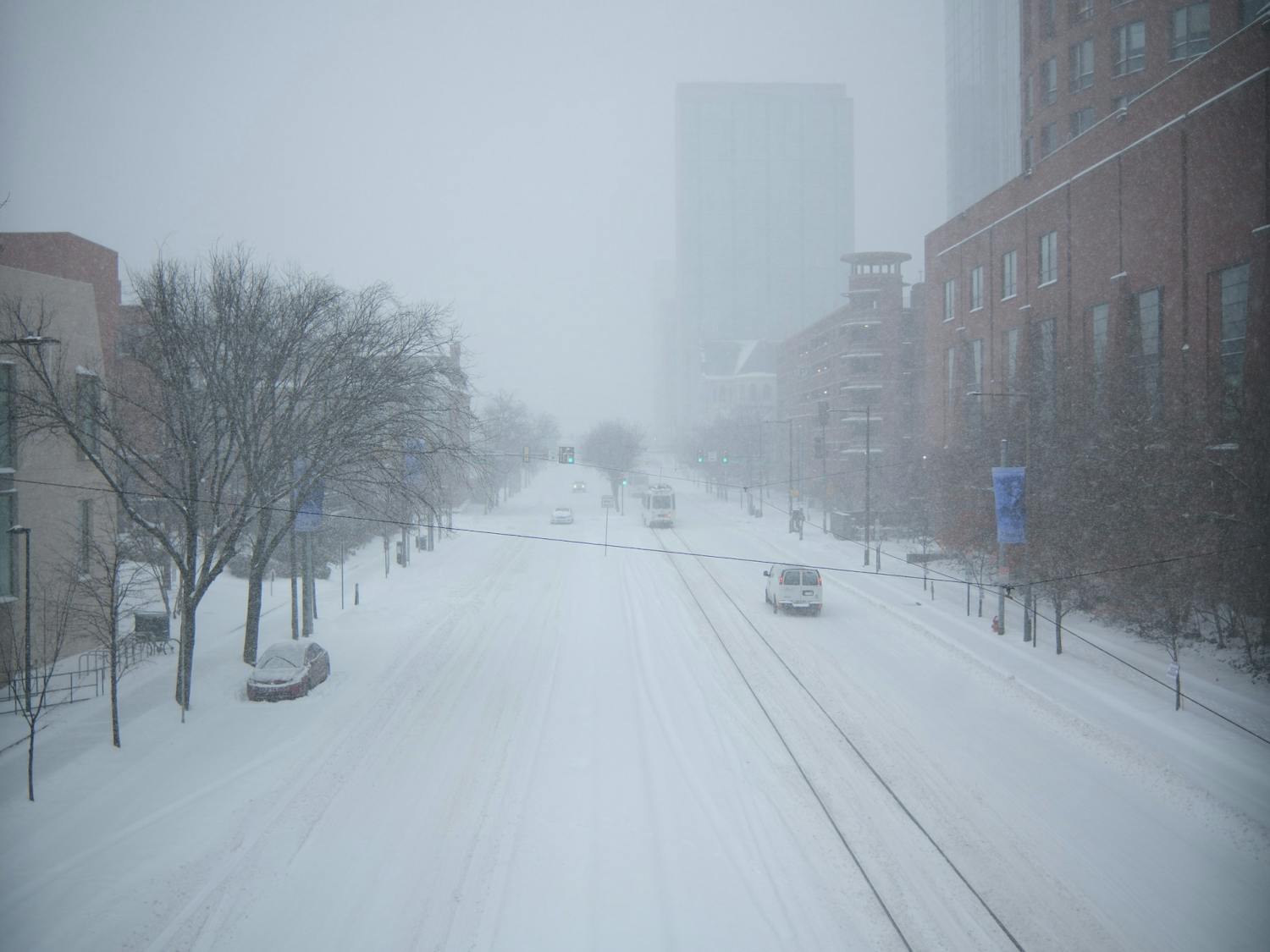Politics is different where I’m from. We don’t have a codified constitution, but we do have an Official Government-Appointed Wizard. The deputy leader of one of the political parties on the 2014 ballot was a pineapple. And our prime minister took a couple months off for maternity leave this year.
New Zealand sounds like a blissful escape from the current firestorm of Pennsylvania Avenue, doesn’t it? But, before you invest in a post-apocalyptic getaway mansion in my faraway motherland, I’m here to say that the United States has got its finger on something great.
Two years ago, I packed my life into two 50-pound suitcases and flew away from the beaches, magic, and sheep. Thirty hours later, I touched down at the Philadelphia International Airport, ready to begin life at Penn.
I was a foreigner starting freshman year in a battleground state two months before the 2016 election. It was crazy and exciting — like nothing I had experienced before.
Now a junior, I spent the past summer in Washington interning at the Penn Biden Center for Diplomacy and Global Engagement. There, I was front and center for one of our major initiatives: the Democracy Project, a bipartisan survey of American attitudes on democracy, in conjunction with Freedom House and the George W. Bush Institute. As a non-American, I was startled by the results.
Eighty percent of Americans are concerned about their current condition of democracy.
Less than one-fifth believe that federal government legislation reflects what the people want. And, focus groups in five cities consistently vocalized frustrations about racism and discrimination, which Americans regard as one of their top-two frustrations about democracy.
The Democracy Project comes during a particularly tense moment in the U.S. political trajectory. Pew Research Center reports that 86 percent of Americans see strong conflicts between Democrats and Republicans, and 65 percent see the same between blacks and whites. These problems aren’t ignored: 68 percent of Americans believe democracy is getting weaker.
SEE MORE FROM LUCY HU:
How to save our democracy in November
If money matters more than votes, is the United States a democracy?
When asked to rate how democratically governed their countries are, 54 percent of New Zealanders gave a rating of eight, nine, or 10 (out of 10), according to the 2011 World Values Survey. Only 33 percent of Americans did the same.
The Economist Intelligence Unit’s Democracy Index ranks New Zealand fourth globally for top functioning democracies. Our score is 9.26 out of 10, while the United States’ score of 7.98 falls in the category of “flawed democracy.”
At first, I lamented America’s political problems. I thought I’d left a wonderland of social equality and universal health care for a false bastion of freedom, riddled with injustice and backward attitudes.
But, after two years in the United States, I realized that, for all its wonderful qualities, New Zealand was actually the real fake paradise. Our democracy rankings don’t mean we don’t have problems — it means we don’t talk about them.

Race being chief among them. Taika Waititi, New Zealand director of "Thor: Ragnarok," recently called his home country “racist as f**k.” He made headlines and received harsh criticism: “He’s gone too far,” “We're not as racist as 'F,’” media personalities retorted.
They even asked Prime Minister Jacinda Ardern to respond. She downplayed it by saying, “I think probably you’d be hard-pressed to find a country that didn’t have racism in it.” Instead of taking an easy opportunity to start a meaningful conversation, our 40th white leader minimized the multiracial director’s honest concerns.
Only 8 percent of Pacific Islanders have a bachelor’s degree or higher.
Asians hold 2 percent of leadership positions in public service, even though they make up 12 percent of the population.
New Zealand leaders like to proclaim that the country is “known to be socially progressive,” but often forget to add the asterisk “*for white people.”
For me, it’s easier to embrace my Asian ancestry in the United States than at home, where I grew up wishing I were white to fit into “Kiwi culture,” an experience shared by other Asian-New Zealanders living in America.
People don’t talk about race, so the non-white narrative is ignored.
And that’s why, despite what the rankings and polling say, I believe in democracy here. Conversations happen. Democracy Projects exist.
At the Penn Biden Center, I reviewed focus group videos and heard Americans express their qualms. I heard overwhelming dissatisfaction that racism was eroding democracy.
“You’re disadvantaged not only by where you live [but] the color of your skin,” one participant openly commented.
Those discussions epitomize my own, at Penn, with Americans. Almost daily, I have conversations that would be “too political” to many New Zealanders. But, only with honest conversations can solutions manifest.
We live in Philadelphia, the birthplace of the world’s oldest democracy. When Franklin, Jefferson, and Adams signed the Declaration of Independence in 1776 on Chestnut Street, they may not have imagined our problems today, but they would’ve loved that we talk about them.
While the Democracy Project’s negative results can seem grim, they give me hope. America, you may think you have problems … but at least you recognize them.

LUCY HU is a College junior from Auckland, New Zealand, studying political science. Her email address is lucyhu@sas.upenn.edu.









